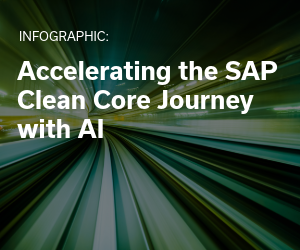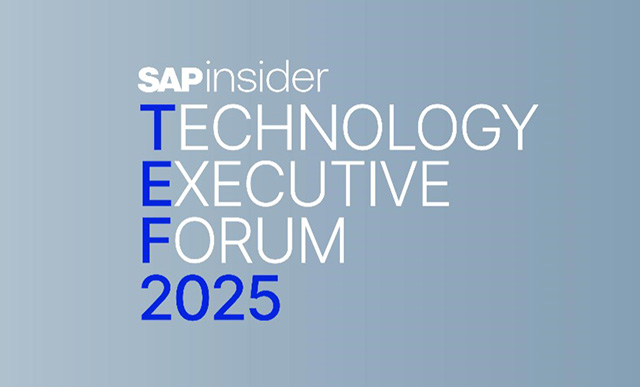UiPath Unveils New Vision for the Future: Expanding the Boundaries of AI with Agentic Automation
Meet the Authors
Key Takeaways
UiPath is evolving enterprise automation with 'agentic automation', integrating AI agents with robotic process automation (RPA) to enhance customization, adaptability, and cost-efficiency across complex business processes.
Recent research highlights a growing emphasis on process automation, with the perception of its importance rising significantly from 40% to 54% between 2023 and 2024, as companies seek improved productivity and profitability in a competitive landscape.
The introduction of tools like Agent Builder™ allows users to easily create and manage agents that work alongside robots, democratizing access to automation technology and enabling employees at all technical levels to handle complex tasks effectively.
UiPath (NYSE: PATH), SAP Solutions Extensions partner and enterprise automation and AI software company, recently announced its new vision and strategic direction centered on the next evolution of enterprise automation – agentic automation.
UiPath, best known for its industry-leading robotic process automation (RPA) technology, is innovating customer automation journeys with agentic automation – a progressive leap from RPA that combines AI agents, robots, people, and models to deliver AI transformation enterprise wide for end-to-end processes. The value of agentic lies in its potential to efficiently tackle the long tail of complex and differentiated use cases across industries, while offering previously unseen potential for customization, adaptability, and cost-savings.
Recent SAPinsider research shows that companies are placing greater importance on process automation. The research report Process Productivity and Efficiency Through Process Automation and Intelligence 2024 uncovered that the perception of process automation as “Extremely Important” has notably increased, jumping from 40% in 2023 to 54% in 2024. This is in keeping with related research that shows companies striving for greater productivity, better expense control, fewer manual touchpoints, and improved profitability in an increasingly global marketplace.
Explore related questions
Agentic automation will use both robots and agents to complete work tasks. Robots are best for automating repetitive and rule-based tasks, improving efficiency, and reducing manual effort, while agents are best at adapting to changes, making intelligent decisions, and handling complex and dynamic processes. The combination of robots and agents extends the scope and impact of automation, unlocking business growth and empowering employees to focus on higher-value work. Agents complete critical business processes and tasks that were not previously possible to automate due to their ability to act independently and make dynamic decisions.
Daniel Dines, Founder and CEO at UiPath, said, “Agentic automation is the natural evolution of RPA. Since our inception, we have helped our customers revolutionize their businesses by emulating humans through robotic process automation. Now, we’re advancing enterprise automation with agents, allowing customers to automate entire end-to-end processes and orchestrate workflows seamlessly. The result is more substantial business outcomes, greater productivity, and more customer-facing direct benefits from automation.”
Agents can make use of the millions of automations developed by UiPath customers and leverage the same ecosystem of tools that enables these automations to integrate reliably with thousands of enterprise business applications. Agents benefit from the governance and control provided by the UiPath Platform and the precision-oriented robots that perform with high reliability as well as human-in-the-loop capabilities for critical decisions.
Maximizing the value of agentic workflows requires orchestration between agents, robots, humans, and models, but the complexity of integrating often-unpredictable models into business-critical workflows can be challenging. UiPath will address these challenges with agentic orchestration: a process that enables the design, implementation, operation, monitoring, and optimization of complex business processes from start to finish. Customers can manage the end-to-end process lifecycle—automation, intelligent process insights, modeling, monitoring, and management—all in one platform, allowing automation, AI agents, and humans to work together for better outcomes. By understanding all roles and responsibilities in workflows, agentic orchestration can ensure compliance and deterministic outcomes with the dynamic adaptability allowed by agents.
New agentic capabilities in the UiPath Platform At its annual FORWARD user conference in Las Vegas, UiPath announced a preview of Agent Builder™, a tool for automation developers to build, evaluate, and publish enterprise agents that work cooperatively with robots on UiPath’s automation platform. Agent Builder is part of the UiPath Studio family of developer tools, meaning developers can use Studio to develop and deploy workflows and apps that work with agents.
Agent Builder will allow users to build agents, either from scratch or from a pre-built agent in the UiPath Agent Catalog, that work in tandem with robots and humans. Customers will also be able to include third-party agents in their agentic workflows if they choose.
Graham Sheldon, Chief Product Officer at UiPath, said, “Agents allow anyone to handle more complex tasks and brand-new scenarios, which provides tremendous value to our customers. Providing customers with the ability to build their own specialized agents in a simple, low-code integrated development environment or a pre-built template makes it easy for them to automate new use cases, avoid costs, and stay ahead of competitors.”
Agent Builder is expected to be available for preview across the UiPath community in December 2024. UiPath also announced the launch of Autopilot for everyone – a cross-platform, GenAI conversational agent that helps every employee enhance productivity at work. Autopilot for everyone allows end users to take full advantage of UiPath’s agents and workflow automations, enabling any employee, regardless of technical ability, to complete complex tasks ranging from getting answers grounded with their own organization’s data, analyzing documents, automating copy-paste into apps, and running automations. Autopilot for everyone provides an intuitive LLM-based conversational experience, customizable prompts, vast automation libraries, and leverages specialized AI models for specific tasks such as document understanding and semantic copy-paste.
Customers also benefit from UiPath security and governance: Autopilot is built on the UiPath AI Trust Layer that enables organizations to easily manage and govern the rollout and data usage of AI models. It is a cross-platform solution that works on both Windows and Mac.
Sheldon said, “At UiPath, we believe strongly in the democratization of this type of technology because we’ve seen firsthand how valuable it is for our customers. We’re excited to help break down barriers to widespread agentic automation adoption so that everyone can take advantage of the numerous benefits that Autopilot brings to everyday work.”
What this means for SAPinsiders
Determine task suitability. Identify which tasks are suitable for automation. Agentic systems are ideal for repetitive tasks but can also handle complex decision-making processes if they are properly programmed or trained with AI/ML techniques. Consider whether the process follows strict rules (ideal for rule-based automation) or requires adaptive learning (better suited for AI-based agents).
Understand unique roles of robots and agents. Agents are capable of making autonomous decisions based on real-time data, complex algorithms, and goals set by the user. It can respond to unpredictable changes and adjust its behavior accordingly. Robots execute tasks based on pre-programmed rules without the ability to make decisions beyond what is explicitly coded. If conditions change outside the predefined script, robotic process automation (RPA) may fail or produce errors. Generally speaking, agents are best suited for adaptive, decision-making environments such as customer service chatbots, autonomous systems, fraud detection, dynamic pricing, or supply chain management. These systems can optimize over time and adjust to new business challenges. Robots are best for repeatable tasks like data entry, invoice processing, payroll, and IT infrastructure management. It works well for linear processes with consistent inputs and well-defined outputs.
Plan for differences in deployment complexity. Agents are more complex to deploy and maintain due to the integration of AI and machine learning models, along with the need for higher computing power and data management. The deployment process may require collaboration with data scientists and developers. Robots are easier and faster to deploy, especially for businesses with straightforward rule-based tasks. RPA can be implemented by business users with less technical expertise through low-code or no-code platforms.










